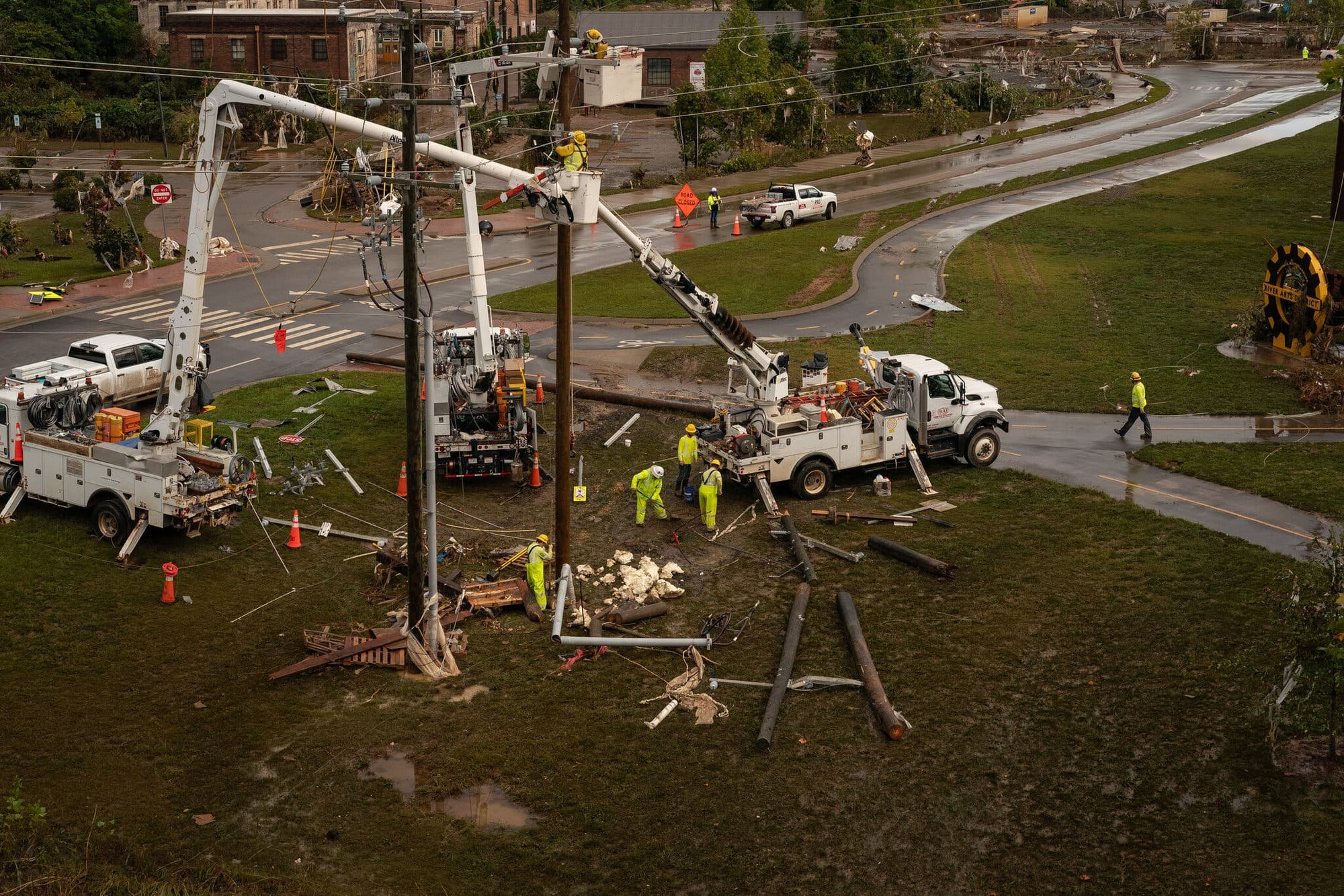Hurricane Helene has had an undoubted impact on human well-being. Focusing on the immediate loss of life and property, many locals have become frustrated with the governmental response, as road closures delayed aid efforts and officials clamped down on private rescue attempts. But as the waters recede, attention must also be paid to the long-term impacts of the storm. Energy prices, a key factor in both quality of life and political decision-making, will undoubtedly be shaken.
Production
Hurricane Helene's damage has been extensive. Total losses are over 200 deaths and a minimum of $30 billion across six U.S. states, and a second storm, Hurricane Milton, is set to cause even more damage in the coming days, specifically in Florida.
Aside from direct human impact, Helene has caused infrastructure damage that will continue to affect Americans in the long term. In the Gulf, 17 offshore oil drilling sites were shut down and evacuated, with repairs needed before production can resume. Chevron, Shell, and BP were among the companies that shut down Gulf oil production. Ultimately, the storm halted 29% of U.S. Gulf oil production (4% of national oil production).
In North and South Carolina, electric substations necessary for providing power to local communities were flooded, causing damage that officials say will take months to repair. 10 days since initial landfall in the Carolinas, an estimated 136,000 North Carolina residents are still without power.
Although the raw cost of repairing this infrastructure cannot yet be estimated, it will be extreme. Energy infrastructure is notoriously difficult to repair due to volatile prices and supply chains. The increase in energy costs, however, will be even worse. No exact estimates of this figure are yet available for Helene, but the Energy Information Administration estimated last year that a high-impact hurricane in the region has the potential to increase retail gas prices by 25 to 30 cents per gallon.
Concerns have even been raised regarding the storm's impact on semiconductor production. Global consulting firm Bain & Company warned that if Spruce Pines, a small town in North Carolina, doesn't fully recover within the next six months, a high-purity quartz shortage could cripple the chip sector, a crucial industry for the vast majority of electronics used by consumers, companies, and even the U.S. military. This is because Spruce Pines's quartz mine is a key part of supply chains for Intel, Micron, and the Taiwan Semiconductor Manufacturing Company (TSMC).
Transportation
While the hurricane has ravaged energy production sources, it has also interrupted key parts of transportation routes that supply the entire country. Several ports in the Gulf were shut down, including Port Tampa Bay, which handles approximately 17 million tons of petroleum annually. At the same time, port workers all across the country walked out on October 1st in a strike against unsatisfactory contract terms. The combination of these factors has had (and will continue to have) a disastrous impact on the U.S. port system.
In North Carolina, the hurricane has isolated entire towns and cut off road access to highly populated cities like Asheville. Key freight routes like I-40 and I-26 were shut down, further limiting energy transportation to areas that need it the most. Gas stations all across the state were unable to operate due to power outages and petroleum shortages, further complicating oil/gas transportation.
Energy access gaps have had further impacts in the Deep South. In Georgia, one gas station was reported to be charging $10/gallon for gasoline. In South Carolina, even cases of water were selling for $60. In response, multiple states have issued warnings regarding price gouging, with each state receiving reports of the practice.
A Key Externality
According to the Pew Research Center, 81% of voters consider the economy "very important" to their decision in November. According to the American Petroleum Institute, nearly nine in ten voters are seeking details from presidential candidates on key energy issues. Energy prices, especially gas prices, are one of the main ways that consumers experience economic shifts, making energy prices an exceptionally high-impact issue for voters.
Trump has not failed to recognize this; he continues to campaign on public dissatisfaction with the Biden administration's economic policies. Harris has also adapted to this by trying to articulate an economic platform that distances her from the current administration.
This recent hurricane (and the one that will follow soon) is not any politician's fault. But that won't stop it from being reflected in voting. The increase in energy costs that will result from the storm is very likely to sway many voters. This is especially notable because the state that was most affected by the storm, North Carolina, is among the seven swing states that will decide the outcome of this year's election.
This means that the storm will impact not only economic decision-making but also political campaigning. North Carolina will receive even more attention from both candidates during the last month before votes are counted. Concrete solutions to improve infrastructure and lower energy costs could emerge as a deciding factor as voters search for a path to recovery.















Discussion